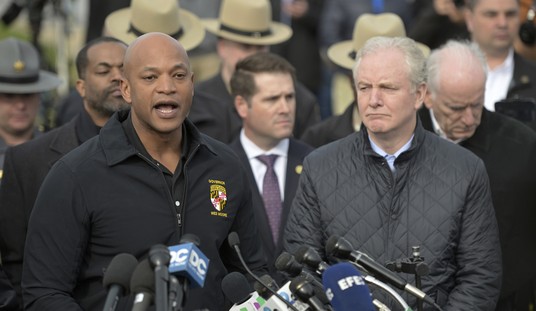Republicans must guard against the temptation to count on scandal to deliver election victories in 2014 and 2016.
It is a lesson they should have learned in 1998. Republicans expected to make large gains in Congress that year but ended up losing five House seats and standing pat in the Senate. The problem was not so much that Republicans “overreached” in pursuing the impeachment of President Clinton, as the conventional wisdom has it. The Republicans that year did not really run on a promise to remove Clinton from office — or on any other agenda. Their strategy was to assume that the scandal would redound to their benefit, and that they merely had to sit back and let victory rain o’er them. It didn’t.
The current lot should not make the same mistake. Democratic scandal does not take the place of a Republican agenda. It does not reform the tax code or reduce the debt or ease regulatory burdens on small business. It cannot substitute for a strategy to replace Obamacare.
As Domenech noted this morning:
“Here’s the hard thing Republicans have to do if they don’t want this crisis to go to waste: they have to ignore their id, the temptation of the sugar high of partisan point-scoring. They must willfully set aside Obama’s presence in the fray, leaving the short term personalized attacks on the table, and go after the much bigger prize. Obama isn’t running for office again. Liberalism is. Making this about him is a short term boost to the pleasure center of the conservative brain. Making this about the inherent falsehood of the progressive project will help conservatism win.”…
Republicans must remember that the problem is not Democrats in charge of government, but government itself. The argument falls flat if Republicans revert to “big government conservative” arguments of “put us in charge” and we’ll do better with the same. No they won’t.
Government is the problem. The vastness, complexity, and nefarious encroachment into our personal lives should be fought, not just blamed on the other side.
It’s fine if there is at some point political hay to be made out of this — that’s a key part of the adversarial nature of accountability in democratic politics, not a defect within it — but it would be a far better thing for the country if the president were to adopt such an aggressively reformist agenda for the IRS that there would be no hay to be made, no room to get to the right of him on the issue. The important thing is to make sure that the administration does the right thing here, even if it does so only because it is in the president’s political interests. When political incentives produce desirable outcomes, we should let them work. If the president wants to take the lead in this matter, fine: That’s what we have presidents for. That does not mean that Congress steps away from its oversight responsibilities or conducts anything less than a full and deep investigation: That’s why we have separation of powers.
I myself doubt very much that the president or any of his immediate circle had a hand in this — it is in the nature of the Left (and in the nature of political power itself) that no marching orders from the top are necessary. University presidents do not tell hiring committees to discriminate against conservative academics, they just do it. No president or Treasury secretary had to tell the IRS to do this.
In some ways, the received version of events is worse than would be a top-directed cabal of rogue IRS agents acting on orders from political superiors. A corrupt element within an agency can be rooted out, and a criminal conspiracy can be unraveled. When the agency is the criminal conspiracy, then the challenge of reform becomes that much greater.
Policy-wonks dismiss scandal because it’s not in their specialty wheelhouse of policy. But governance is not just policy — it is also governance, that is to say, it is also management, and all the requirements of sound management, such as focus to detail, ethics, integrity, and honesty.
Why is it somehow “less” to knock the White House and the Democrats for failing at these things? Are they not important as well?
Policy matters, but so does personnel. And, let’s recall — policy is personnel.
Let’s be honest here: 40% of the voters have no idea what policies are in play in any specific election, and 70% of them don’t know the specifics of policies under consideration. We tend to know broad strokes…
So yes, I do wish to run on scandal, at least partially, because You cannot trust them is a very effective campaign theme, and has won more elections than any policy-based theme.
[A]s much as congressional Republicans are enjoying their schadenfreude, they would be well advised to think long and hard about their next steps. Even the most cursory look at opinion polls or focus groups reveals that the public is convinced we have an ineffectual and out-of-touch Congress that spends too much time backbiting, grandstanding, and Monday-morning quarterbacking while the country’s problems fester. Arguably, showboating for the cameras and holding hearings are what Congress does best; the temptation is unavoidable.
Republicans would be much wiser to pursue a third option: Dig up as much damaging information as they can about the Obama administration and leak it to reporters they know will write tough stories that won’t be traced back to the source. That way, the public won’t see the GOP as being obsessed with attacking the other side and playing gotcha at the expense of the big issues facing the country—the ones voters really care about.
”The area we have to avoid is to not use the ‘I’ word — impeachment,” said Bolger. “It is far too early for that, and talking about impeachment now means you are not serious about the issue — you are just trying to score political points.”
Bolger’s advice? Use the IRS and AP stories to make a broader point about the differing views the parties have of the role of government. “AP and IRS are what happens when you elect people who worship at the altar of unfettered government,” explained Bolger. “Big, powerful government is not the answer.”
Another Republican consultant, granted anonymity to speak candidly, added that his party has to double track — investigating wrongdoing while also pushing its own positive agenda. ”This is part of my concern about the GOP being the poster child of Washington dysfunction because all we ever do is block legislation, we never pass anything,” the source wrote in an e-mail to The Fix. “We need to deal with immigration, budget, tax reform, etc. etc. while we’re doing this.”
Republicans may feel greater effects. Even before these disclosures, congressional Republicans had dramatically escalated their resistance to Obama’s second term. While the House is voting yet again this week to repeal the president’s health care law, Senate Republicans have blocked consideration of Obama’s nominees for Labor secretary and Environmental Protection Agency administrator. As in Clinton’s era, the approaching cycle of investigation, media leak, and hearing-room confrontation over the IRS and Benghazi will deepen a sense of unstinting partisan conflict that will further narrow the space for serious legislative negotiations.
Davis, now director of federal affairs at the Deloitte consulting firm, says one critical difference from the Clinton years is that many GOP leaders still consider deals with Obama on immigration and the debt ceiling to be in the party’s self-interest. But to the extent Republicans believe scandal is bloodying Obama (and thus Democrats for 2014 and 2016), party leaders will face greater pressure not to buttress him with any policy agreements. “This makes it far more challenging for someone … who wants to do deals with a president who is just despised by the base,” says Gillon.
If these investigations ultimately impede deal-making on issues such as immigration, they will imperil Obama’s desire for a legislative legacy and stunt his second term. Yet such a breakdown would also endanger the GOP’s need to expand its unsustainably narrow electoral coalition. Republicans could find that stoking the flames of scandal may sear not only Obama’s hopes but also their own.
“These guys are awfully frustrated right now,” Carville said, referring to the GOP. “They’re taking the anger out, and I understand that. I think the White House has just go to live with this for 30 days, get the truth out and you know, just roll with the punches here. They’re down to swinging pretty wildly here.”
He added, “That’s just going to be what we’re going to have to deal with here for the next month and I think the president needs to get ahead of it and probably put a new person in there and find out what happened and report to the American people and it will burn itself out, too. And it will move to the next thing.”
Yes, Democrats destroyed Richard Nixon and shook America’s faith in government. But for all that effort, they ended up controlling the White House for just four of the next eighteen years.
To be sure, there were many other consequences, and there were numerous reasons why Republicans continuing winning the White House, despite Nixon’s resignation. But at the end of the day, we’re still left with this: Even the model scenario for ousting a sitting president yielded, at best, mixed results for the party out of power.
But that’s not the point. This isn’t about politics, it’s about the rule of law.
It’s about doing what’s right. It’s about holding powerful people accountable. It’s about preserving liberty. It’s about sending a message to the next administration that we’re watching — that abuses of power won’t be tolerated.
Via Mediaite.








Join the conversation as a VIP Member